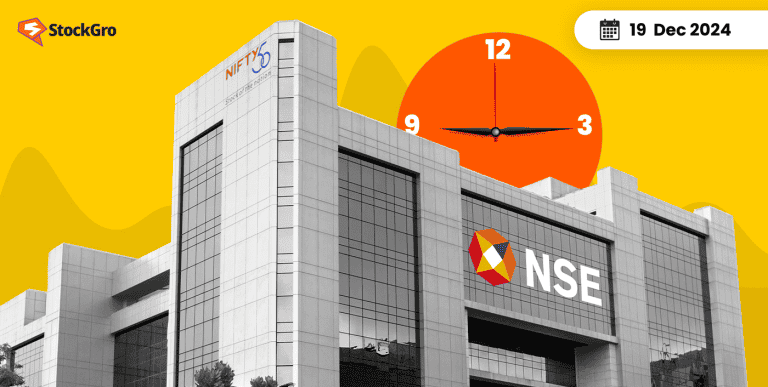
Capital is integral for the sustenance and growth of business. There are an array of methods in which an organisation aims to raise this capital. Each method has its unique features that provide a blend of pros and cons.
Primarily, a business raises funds either through issuing shares that dilute the ownership of the company as each share depicts a part of the company’s ownership or through debt.
Within debt, a company either raises short or medium-term debt through bank loans or long-term debts through debentures and bonds.
Also read: Understanding Unrealized Gains and Losses in Investments.
What are debentures?
A debenture is a kind of debt security that is not guaranteed by any charge on assets and hence derives its safety solely from the creditworthiness of the issuer. A debenture can be issued by government, government-owned undertakings or private companies.
Early investors and finance enthusiasts often confuse between debentures and debenture stocks.
Debenture vs debenture stocks
Although debenture and debenture stock refer to the same method of raising funds, they differ in scope and perspective.
While debenture refers to the debt instrument which is not backed by any collateral, debenture stocks refer to the agreement or contract between a debenture holder and the company in question.
Convertible debentures and non-convertible debentures are the classification of debentures based on their conversion into equity shares.
Also read: Defining Volume Weighted Average Price (VWAP) in Trading.
What is a convertible debenture?
A long-term debt facility that can be transformed into equity stocks after a specified period of time is called convertible debenture. There are various classifications of these debentures. They are listed below.
Fully convertible debentures
These are debentures in which the complete amount held in debentures can be transformed into equity shares of the corporation.
Partly convertible debentures
Debentures which can be partly transformed into equity shares are called partly convertible debentures.
An integral question is why a company uses convertible debentures and not equity shares directly to raise funds.
Convertible debentures- a win-win situation
Companies often issue convertible debentures rather than equity shares for various reasons.
It provides a lucrative avenue for cautious investors who prefer to avoid the greater risk of equity shares. They get the opportunity to invest in the company while still having the opportunity of equity investment on the table.
Equity shares dilute the ownership of a firm. For an early-stage company, convertible debentures offer a valuable tool to reduce dilution of ownership.
Non-convertible debentures enable better prevention of ownership dilution.
What are non-convertible debentures?
The long-term debt securities that cannot be transformed into shares are called non-convertible debentures (NCD). There are various classifications of such debentures. Some of them are listed below.
Secured
Secured NCDs refer to those long-term instruments that are backed by the issuer’s assets as collateral.
Unsecured
Unsecured NCDs are those that are based completely on the reliability and creditworthiness of the company in question. These are not guaranteed by a charge on assets.
Convertible debentures vs non convertible debentures
The distinction between convertible and non-convertible has become quite apparent. Below are a few other key parameters which add to the distinction between these two categories of debentures.
Interest
The interest on convertible debentures is lower than that on non-convertible debentures because they carry the opportunity to convert debenture holdings into equity shares.
Maturity value
The amount receivable on maturity depends upon the market value of the equity shares in case of convertible debentures. Non-convertible debentures have a pre-determined maturity value.
Prevailing market conditions
Even during unfavourable market conditions, convertible debenture holders enjoy the right to convert their holdings into equity shares. However, non-convertible debenture holders cannot redeem their funds before maturity.
Role of instrument holders
Convertible debenture holders enjoy the position of both creditors and owners over specific periods. However, in the case of non-convertible debenture holders, they are solely creditors to the business.
Redemption in case of winding up
In case of winding up of the company’s affairs, convertible debenture holders who exercise their rights and convert their debentures into shares are paid up last after the repayment to all external creditors.
Conclusion
The distinctions between convertible and non-convertible debentures enable inventors to have avenues which can complement their unique needs and aspirations. Although raising capital is the primary goal of business, there are various other parameters which have to be considered in order to ensure efficient accumulation of capital.
The most important criterion which determines the issuance of convertible and non-convertible debentures from the perspective of business is the dilution of ownership. A company issuing such debentures often doesn’t want to create a charge on its asset whilst maintaining considerable command of voting rights.
Also read: Making Money in Stocks: A Beginner’s Guide to Investing.
FAQs
- Is it good to invest in non-convertible debentures?
An investment can be considered successful only when it is aligned with the financial goals of the investor. Non-convertible debenture provides higher interest than convertible debentures along with a fixed maturity valuation. It seems like an optimum investible instrument for risk-averse investors who often prioritise security over high returns. It is important to note that the return of this instrument is lower than that on equity shares.
- What is the disadvantage of NCD?
Non-convertible debentures are long-term debt instruments that are not guaranteed by a charge on company assets. NCD holders are not the owners of the company. Therefore, they do not enjoy the privileges like voting rights which shareholders enjoy. There are many other apparent drawbacks of these instruments. However, an investor should prioritise their financial goals before making any investment decision.
- How can we sell non-convertible debentures?
Non-convertible debentures cannot be redeemed prematurely, but they can be traded on the securities exchange. This provides investors with a sense of security that is derived from the resultant liquidity. The secondary market for NCDs is less developed than the stock market, where company shares are traded.
- What are the advantages of convertible debentures?
There are several advantages of convertible debentures. It offers a profitable opportunity for cautious investors who desire to avoid the higher risk of equity shares. Equity shares often bear a degree of risk which some investors don’t feel comfortable with. Through convertible debentures, cautious investors can invest their funds while keeping equity investment as an option.
- What is the difference between convertible and non-convertible debt?
There are numerous distinctions between these two classifications of debentures. Convertible debentures refer to those debt instruments which can be converted into equity shares after specific time intervals. NCDs, on the other hand, cannot be converted into equity shares and are payable after maturity.

